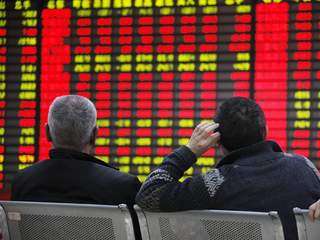 Asian stocks sink on global economy fears
Asian stocks sink on global economy fears
HONG KONG (AP) — Asian stock markets were pummeled Monday by the possibility of slowing growth in China and a further reduction in U.S. central bank stimulus.
Stocks sank as investors sought out havens such as the Japanese yen, which strengthened to a seven week high against the dollar, and gold, which was at its highest in more than two months.
Investors were awaiting a two-day meeting of the U.S. Federal Reserve starting Tuesday, where officials are expected to reduce the central bank’s monthly bond buying by another $10 billion to $65 billion. Recent signs of a sustained recovery in the world’s biggest economy will play a big role in the decision by Fed officials to scale back stimulus for a second time.
Emerging markets have been propped up for years by investors seeking higher returns using a tide of so-called “easy money” from the Fed and other central banks but now that the end for those policies looks to be near, some investors are fleeing stocks. The turmoil has slammed some places particularly hard, such as Argentina, where the peso dropped 16 percent against the dollar over two days last week.
“The growing turmoil in emerging markets is inflicting damage on risk assets across the board and no letup is expected in the near term,” said Mitul Kotecha, head of global markets research for Asia at Credit Agricole CIB, in a report.
The global sell-off was triggered by the preliminary results Thursday of a survey showing that China’s massive manufacturing industry would contract in January for the first time in six months, the latest sign that a painful slowdown in the world’s No. 2 economy is likely to continue.
“We’ve seen brief slowdowns in China before,” said Michael Every, head of financial markets research for Asia-Pacific at Rabobank. “The difference is we don’t expect to see rapid acceleration again this time, because they’re trying to clamp down on credit growth to prevent nonperforming loans going even higher than they are.”
Japan’s Nikkei 225 sank 2.3 percent to 15,023.08 as they dollar edged higher to 102.42 yen from 102.38 late Friday. The yen has strengthened significantly in the past few days, which is negative for export stocks.
Hong Kong’s Hang Seng lost 2 percent to 21,987.65 and Seoul’s Kospi dropped 1.3 percent to 1,915.27. In mainland China, the Shanghai Composite Index dropped 0.7 percent to 2,031.24. Benchmarks in Taiwan, Singapore, Philippines, Indonesia and New Zealand also slipped.
The Australian stock market was closed for a holiday.
In the U.S. on Friday, the Dow finished down 2 percent at 15,879 and the Standard & Poor’s 500 fell 2.1 percent to 1,790. The Nasdaq composite fell 2.2 percent to 4,128.
The euro strengthened to $1.3683 from $1.3676.
In energy markets, benchmark crude for March delivery was up 6 cents to $96.70 in electronic trading on the New York Mercantile Exchange. The contract fell 68 cents to close at $96.64 on Friday.










Add comment